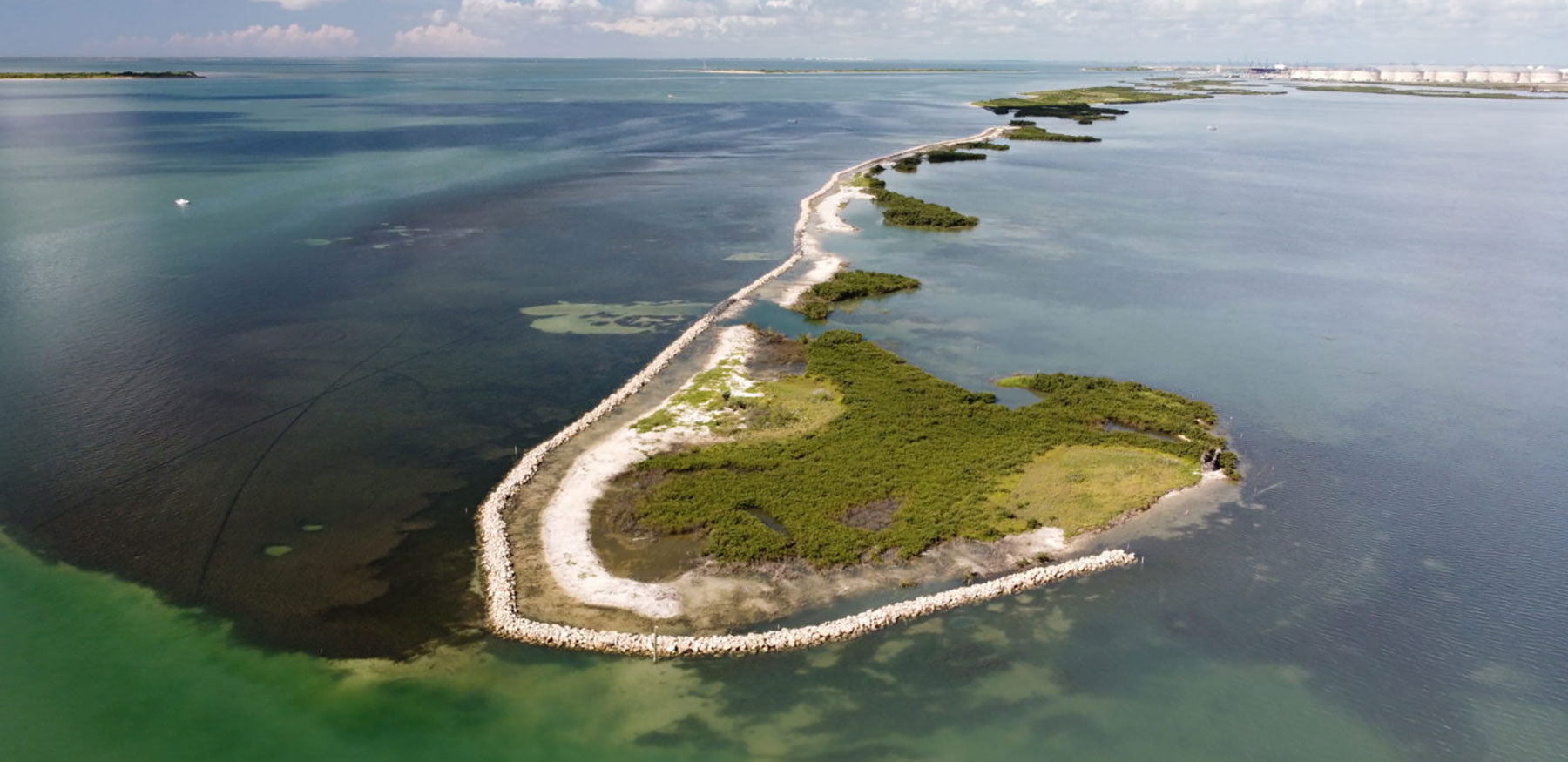
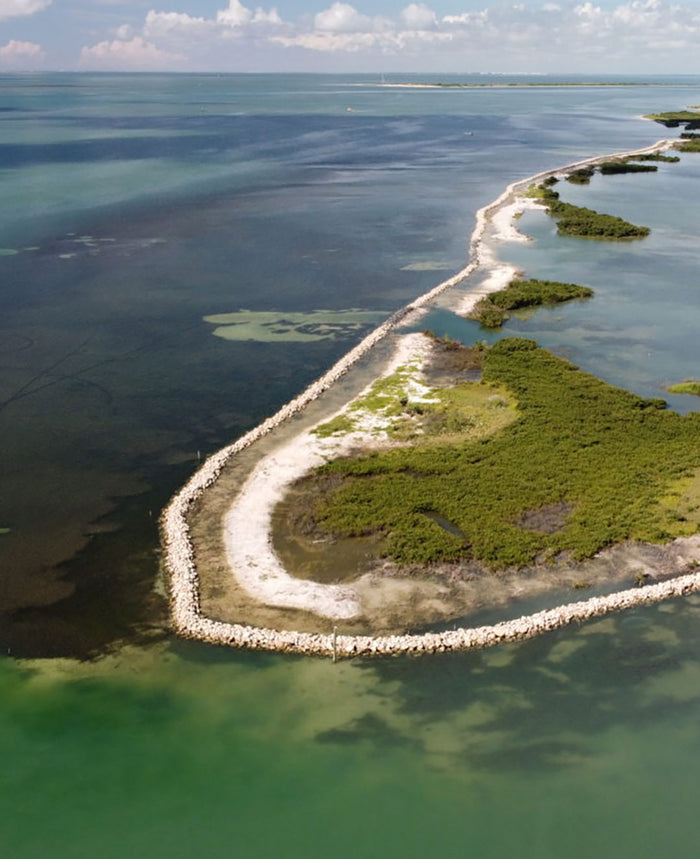
Saltwater Habitat Restoration
The CCA works to protect not only the health, habitat, and sustainability of our marine resources, but also the interests of recreational anglers and their access to the resources they cherish. A vital component of that success includes working to restore saltwater habitat across the country. AFTCO's 10% Pledge provides funding to the CCA for their grassroots saltwater habitat restoration efforts.
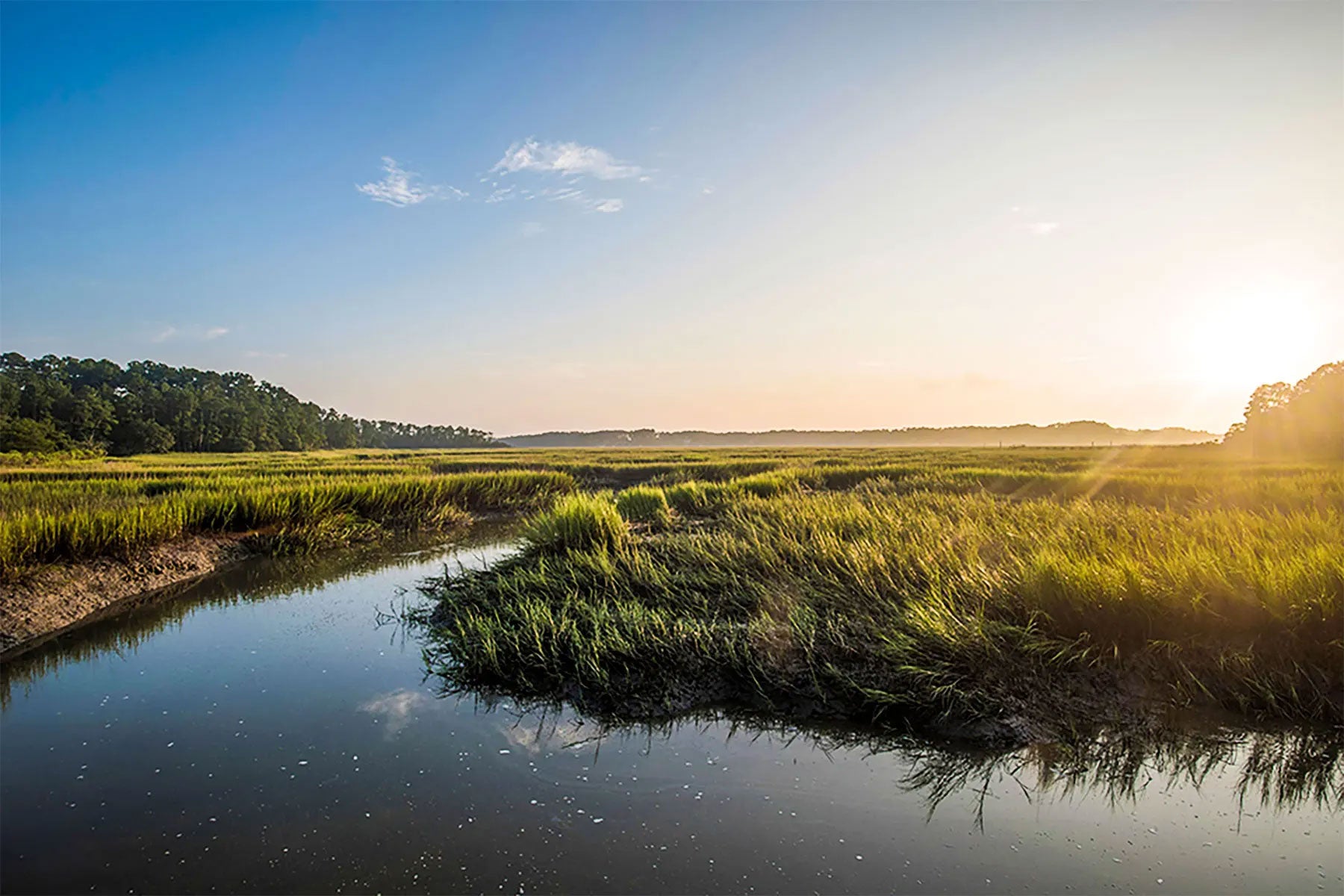
A vital part of the marine ecosystem, seagrasses provide food, habitat, and nursery areas for numerous vertebrate and invertebrate species.
Seagrass Planting
A staggering amount of marine life spends some part of their lifecycle in and around marsh and seagrass environments. These vital marine ecosystems provide food, habitat, and nursery areas for numerous vertebrate and invertebrate species, and are a critical barrier against storm surge and coastal erosion. Insufficient freshwater inflows and careless development are key threats to coastal seagrass and marsh ecosystems around the world.
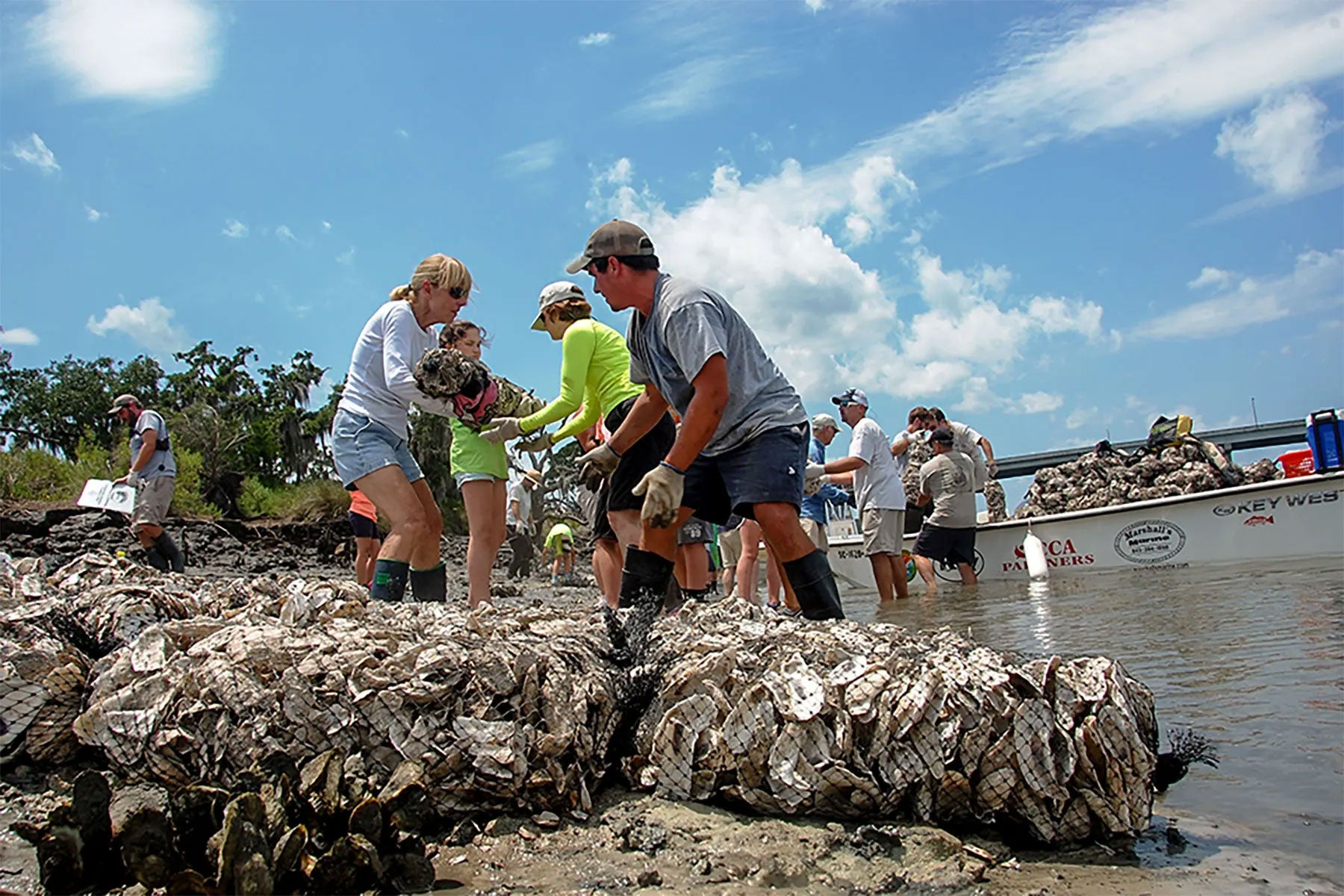
Oysters filter up to 50 gallons of coastal water per day, removing toxins from runoff and creating a habitat where wildlife can flourish.
Oyster Bed Restoration
Oysters serve a wide array of ecological functions and are a keystone species for robust estuaries. Healthy oyster reefs create a habitat where wildlife can flourish and protect against erosion and storm surge. An individual oyster can filter up to 50 gallons of water per day, reducing turbidity and increasing sunlight that encourages seagrass growth. Oysters face a significant threat from commercial over-harvest and can also be degraded by silting from major hurricanes and storms.
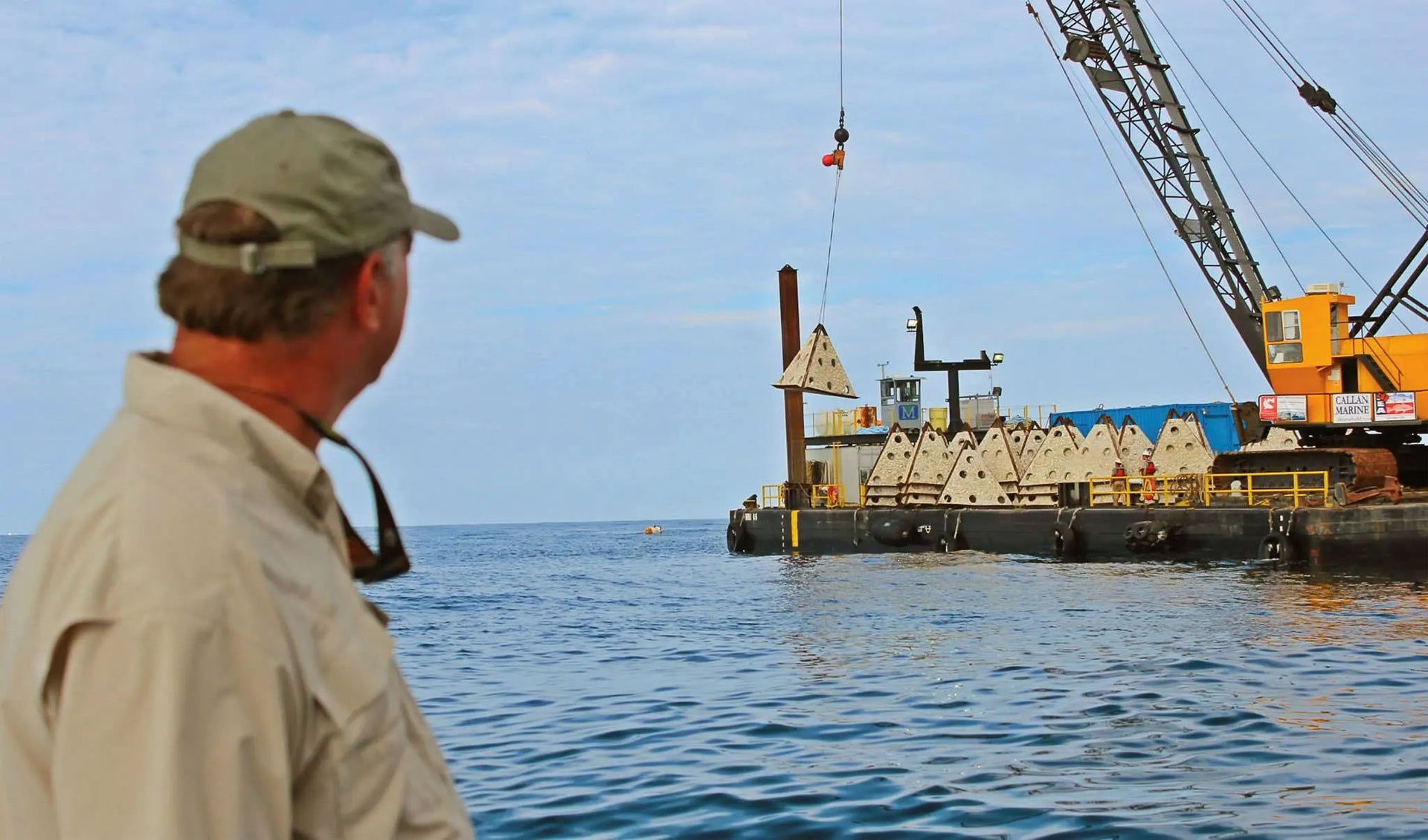
Properly designed artificial reefs offshore can transform a seemingly lifeless mud bottom into an oasis of life.
Artificial Reefs
Artificial reefs provide a foundation for natural habitat development that benefits not only reef fish, but pelagic and forage fish species as well. Properly designed artificial reefs offshore can transform a seemingly lifeless mud bottom into an oasis of life, bringing together all the elements to support various life phases of a wide variety of fish populations. Artificial reefs enhance fish populations, increase access for recreational anglers and divert pressure from more sensitive natural hard bottom areas and reefs.
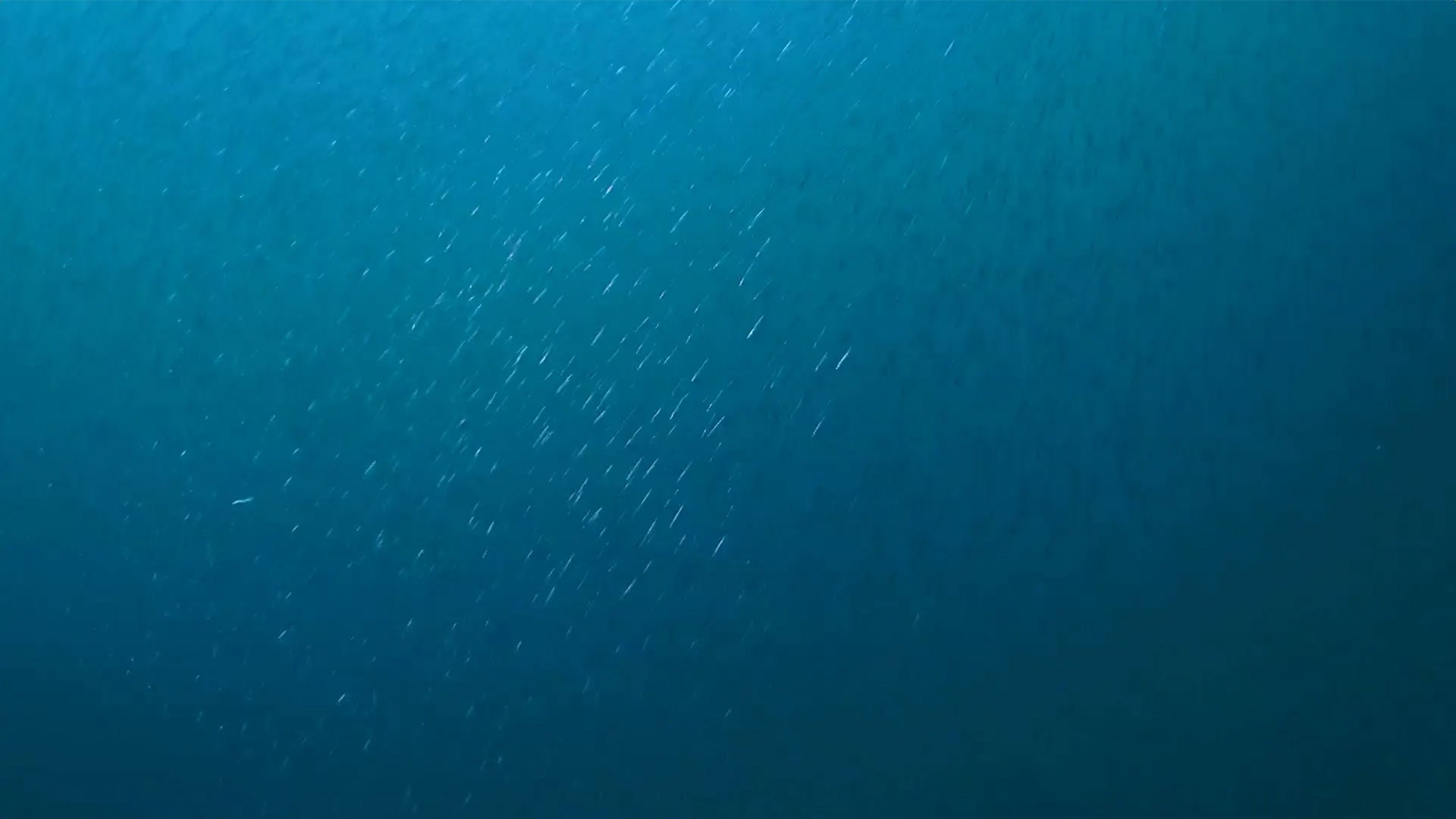
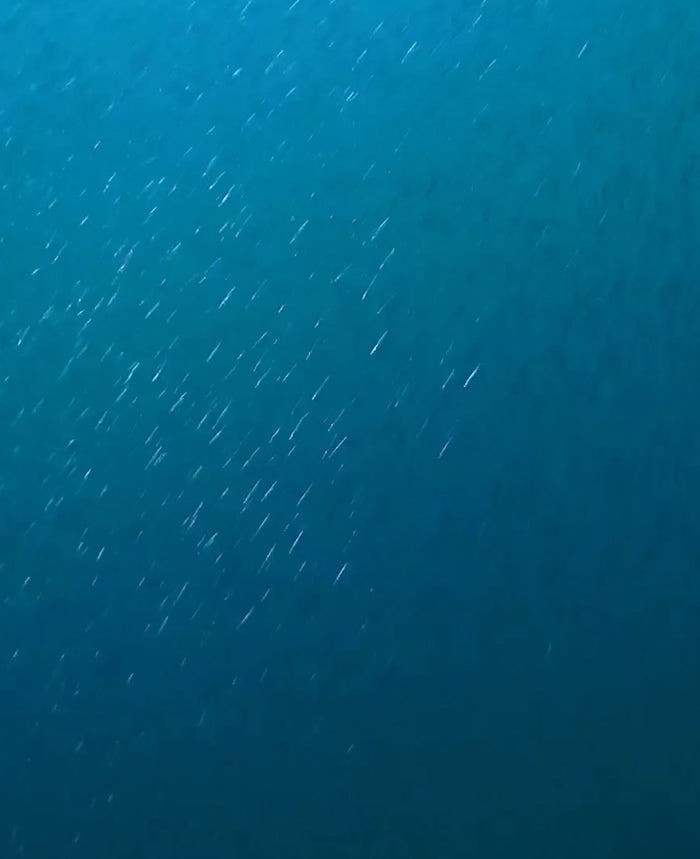
The Building Conservation Trust provides funding for local, state and national fisheries, habitat conservation and restoration projects.

The Building Conservation Trust (BCT) was created to provide vital funding for grassroots-driven projects that achieve one or more of five key objectives:
Restore Degraded Habitats
Create New Habitats
Advance the Science of Coastal Habitat and Marine Fisheries Conservation
Foster Habitat Stewardship
Educate Coastal Communities of the Value of Conservation
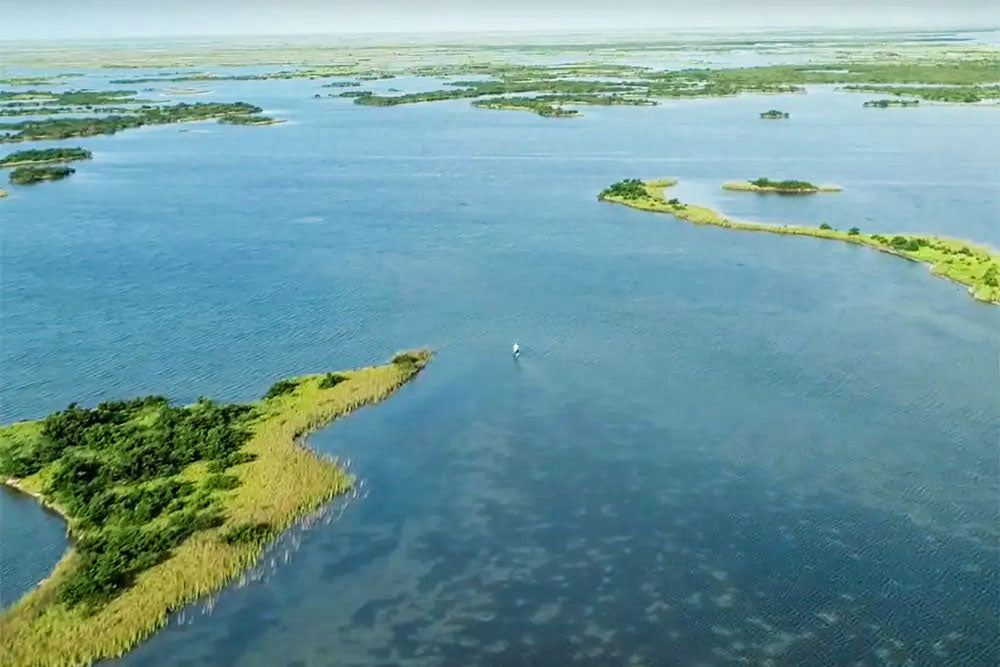
Since inception, funds provided by BCT have proven to be incredibly impactful in the world of marine habitat conservation. Through a highly successful matching funds program, BCT has garnered over $18 million towards over 40 projects, all being placed in our waters.



